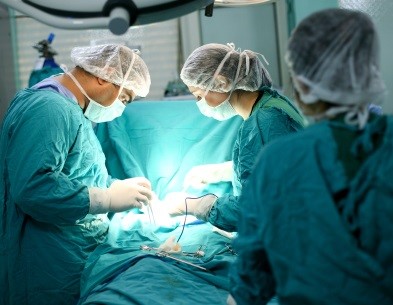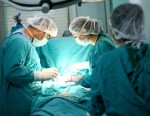Use of Steroids in Heart Surgery Poses Increased Risk to Patients, Study Finds

 The recently published results of a wide-ranging, international clinical trial suggest that the broadly established medical practice of administering steroids to patients in the midst of cardiopulmonary bypass procedures to prevent inflammation likely does more harm than good.
The recently published results of a wide-ranging, international clinical trial suggest that the broadly established medical practice of administering steroids to patients in the midst of cardiopulmonary bypass procedures to prevent inflammation likely does more harm than good.
Presented at the yearly scientific sessions of the American College of Cardiology, these findings appear likely to lead many doctors to stop using steroids in this manner going forward.
Background of SIRS steroid study
The “SIRS” clinical trial followed over 7,500 patients spanning 18 distinct countries, all of whom underwent a cardiopulmonary bypass procedure involving use of a heart-lung machine. In such surgeries, the machine temporarily assumes heart and lung functions, and steroids are often given in order to reduce potential inflammation resulting from its use. The steroid methylprednisone has long been used for this purpose, and has become standard practice in healthcare facilities across the globe, particularly in the European countries of Denmark, Germany and the Netherlands.
In this trial, half of the study participants received steroids during their procedure, while the remaining half were given placebos. Follow-up checks were done on the patients 30 days after their operations occurred. To the surprise of researchers, the steroids did not perform as intended, with 927 of the participating patients having suffered a heart attack and 332 of them having died.
Patients who received steroids experienced a combined rate of heart attack and death of 15%, and those receiving methylpredisone had a risk of heart attack alone roughly 21% greater than those who were given the placebo. No reduction in mortality was seen for those taking the steroids as opposed to those taking a placebo. In addition, the steroids did not positively impact the risk of stroke, kidney or lung failure, according to lead author of the SIRS study, Dr. Richard Whitlock of McMaster University in Hamilton, Ontario, Canada.
Implications of study in terms of heart surgery complications
Over 500,000 cardiovascular surgery procedures occur in the United States annually, and steroids such as methylprednisone are administered during many of them. Canadian doctors also commonly use steroids in operations requiring cardiopulmonary bypass. However, up until recently, little research had been performed to assess their effectiveness or determine whether they in fact posed an unnecessary risk of dangerous heart surgery complications. In light of the SIRS study findings, Dr. Whitlock and fellow study participants are now recommending that steroids should no longer be used as a prophylactic measure to as part of cardiopulmonary bypass surgeries.
The unusually large size and scope of the trial and the definitive nature of the results all have a substantial likelihood of effecting an immediate change in practice for doctors around the world. Dr. Whitlock is quick to emphasize, however, that the study does not advocate cessation of the use of steroids in heart surgery patients who take anti-inflammatory agents for other conditions or to address ancillary concerns.
Rather, it simply establishes the fact that the administration of steroids such as methylprednisone during cardiopulmonary bypass procedures can indeed result in needless harm to thousands of patients each and every year.


